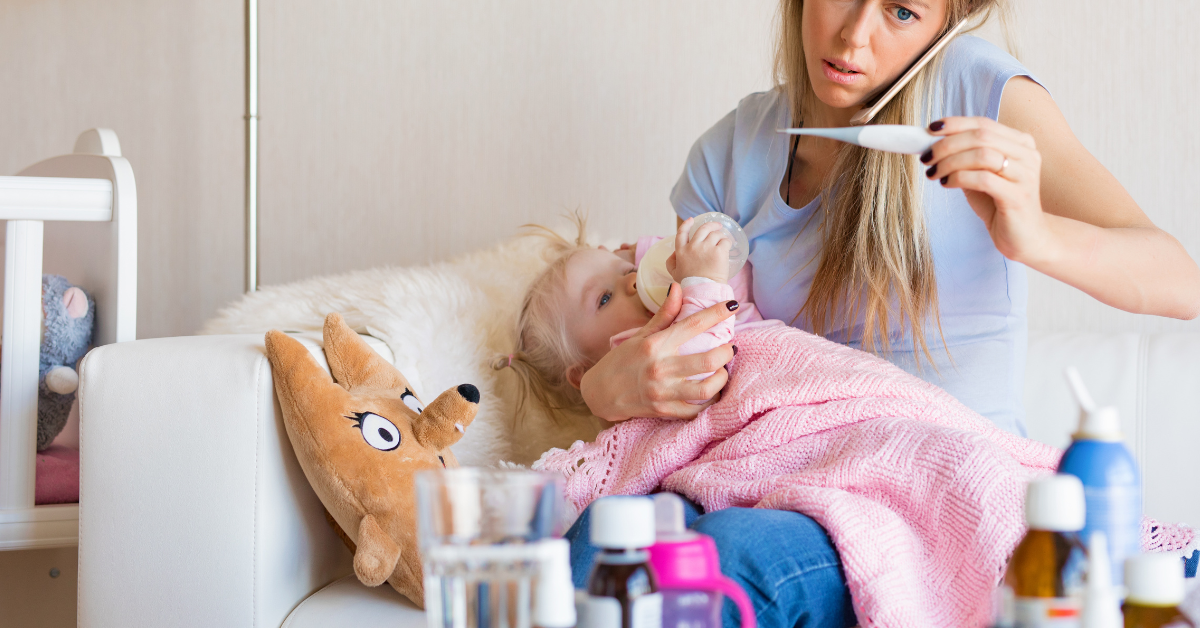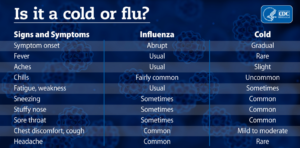
Flu Season is here
At Play Sense, we have a play-based learning program to suit every family. Enrol your little one and give them the best start to learning. Get in touch to find out more.
During the pandemic we barely saw the annual influenza and flu cases due to us all isolating and wearing masks. As a result, there has been a drop in community immunity to the influenzae virus which saw a rise in the cases last year and this year is already looking like it could be worse.
Flu seasons are unpredictable. Although widespread flu activity usually occurs every year, the timing, severity, and duration of it depend on many factors, including which flu viruses are spreading, the number of people who are susceptible to the flu viruses that are spreading, and how similar vaccine viruses are to the flu viruses that are causing illness. Many respiratory infections spread from person to person through coughs and sneezes and cause symptoms similar to those of flu. Flu viruses are thought to spread primarily from person to person through coughs and sneezes of infected people. Less often, a person also might get flu by touching a surface or object that has flu virus on it and then touching their own mouth, eyes, or nose.
What are the symptoms of influenzae?
The symptoms of flu can start suddenly and can include fever or feeling feverish/chills, cough, sore throat, runny or stuffy nose, muscle or body aches, headaches, and fatigue (tiredness). Cold symptoms are usually milder than the symptoms of flu. People with colds are more likely to have a runny or stuffy nose. Colds generally do not result in serious health problems.

Ways to avoid getting sick during this winter period.
The single best way to protect against seasonal flu and its potential severe complications is to get a seasonal flu vaccine each year. Flu vaccination is recommended for everyone aged 6 months and older. Making healthy choices at school and at home can help prevent flu and spreading flu to others.
Encourage children and parents to practise these safe measures:
- Stay home when you are sick. If possible, stay home from work, school, and errands when you are sick. You will help prevent others from catching your illness. Avoid close contact with people who are sick.
- Avoid touching your eyes, nose, or mouth. Germs spread this way.
- Clean and disinfect surfaces or objects. Clean and disinfect frequently touched surfaces at home, work or school, especially when someone is ill.
- Attend general wellness checks with your local doctor/paediatrician.
- Keep up to date with the EPI immunisation schedule
If your child is sick…
What can I do if my child gets sick?
Talk to your doctor if your concerned regarding your childs condition. General supportive care including encouraging fluid intake, regular analgesia and bed rest.
Children younger than 5 years especially younger than 2 years old and with long term chronic conditions (including asthma, heart conditions) are at high risk of serious flu-related complications. Contact your doctor if they develop symptoms to avoid unnecessary delay in treatment.
What if my child seems very sick?
Even healthy children can get very sick from the flu.
If your child experiences the following emergency warning signs you should go to the emergency unit:
Trouble breathing or fast breathing
Bluish or pale/grey skin
Not drinking enough fluids (including not urinating as much urine as they normally do)
Severe or persistent vomiting
Irritability (and struggling to console) or lethargic and not interacting as they usually do
Flu symptoms with a rash
Always get your child examined when flu symptoms improve but then return with a fever and worse cough
Is there a medicine to treat flu?
Yes, there are antiviral drugs that can be prescribed to assist with treat the influenzae virus. It can shorten the illness and attempt to make it milder and can prevent serious complications. These medcations work best when started during the first 48 hours of the illness. Your doctor will assess the smyptoms and based on the examination decide whether your child will qualify for these medications.
How long can a sick person spread flu to others?
Patients with the flu can infect others from one day before getting sick and up to 5-7 days after. Severely ill or younger children may be able to spread the flu longer, expecially if they have symptoms.
Can my child go to school, day care, or camp if he or she is sick?
No, your child should stay home to rest and avoid giving the flu to other children or caregivers.
When can my child go back to school after having the flu?
Your child should stay home from school for atleast 24 hours after their fever is gone. The fever should be gone without use any fever-reducing medications.
If your concerned regarding your child’s health and risks associated with the flu season and concern of illnesses have a chat to your local paediatrician.
Dr Anisa Vahed- General Paediatrician
www.drvahedpaediatrician.co.za